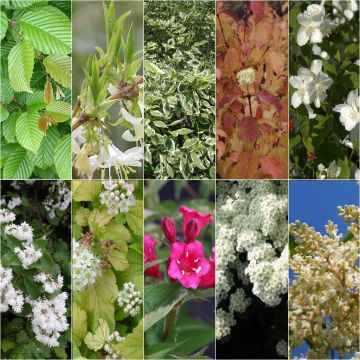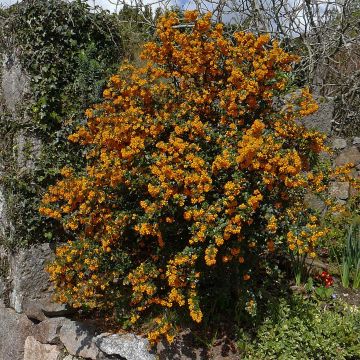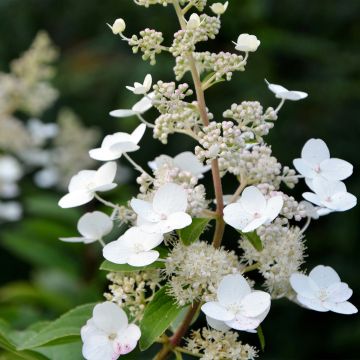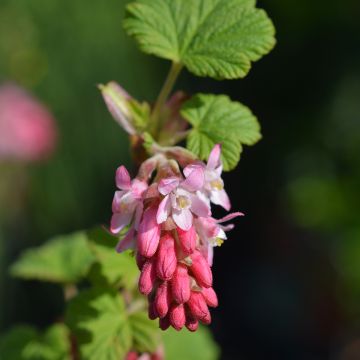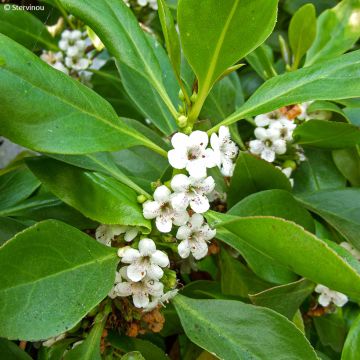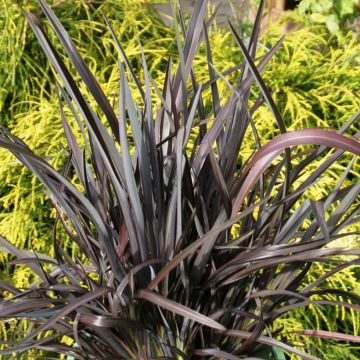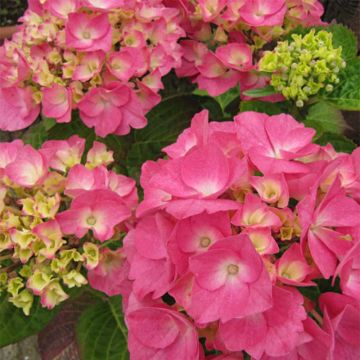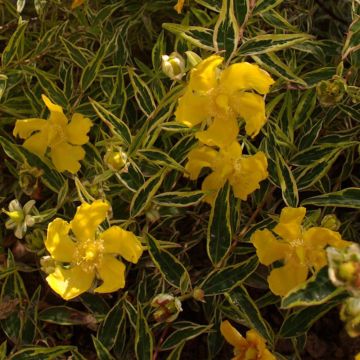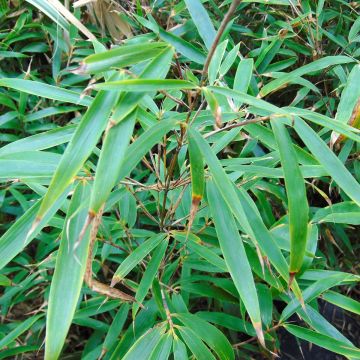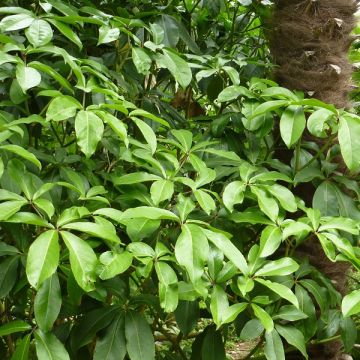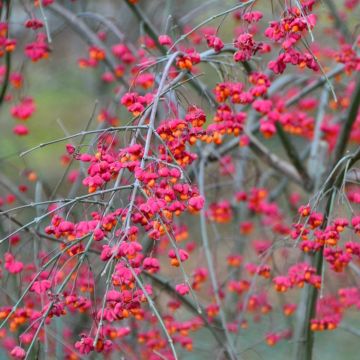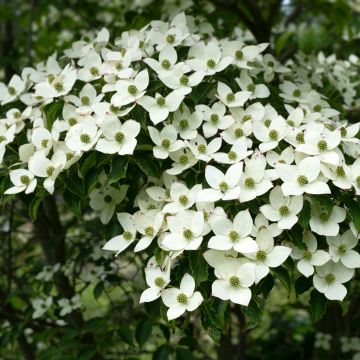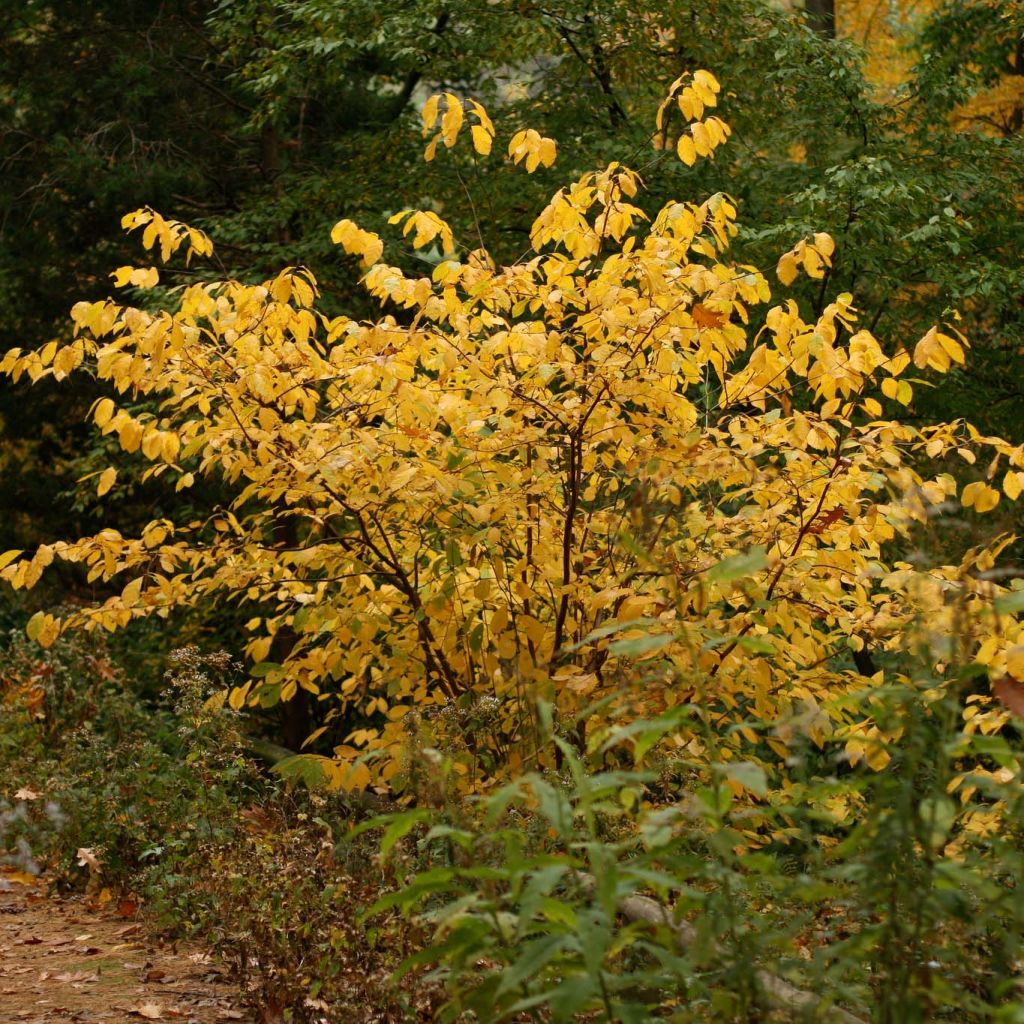

Lindera benzoin - Laurier benzoin.
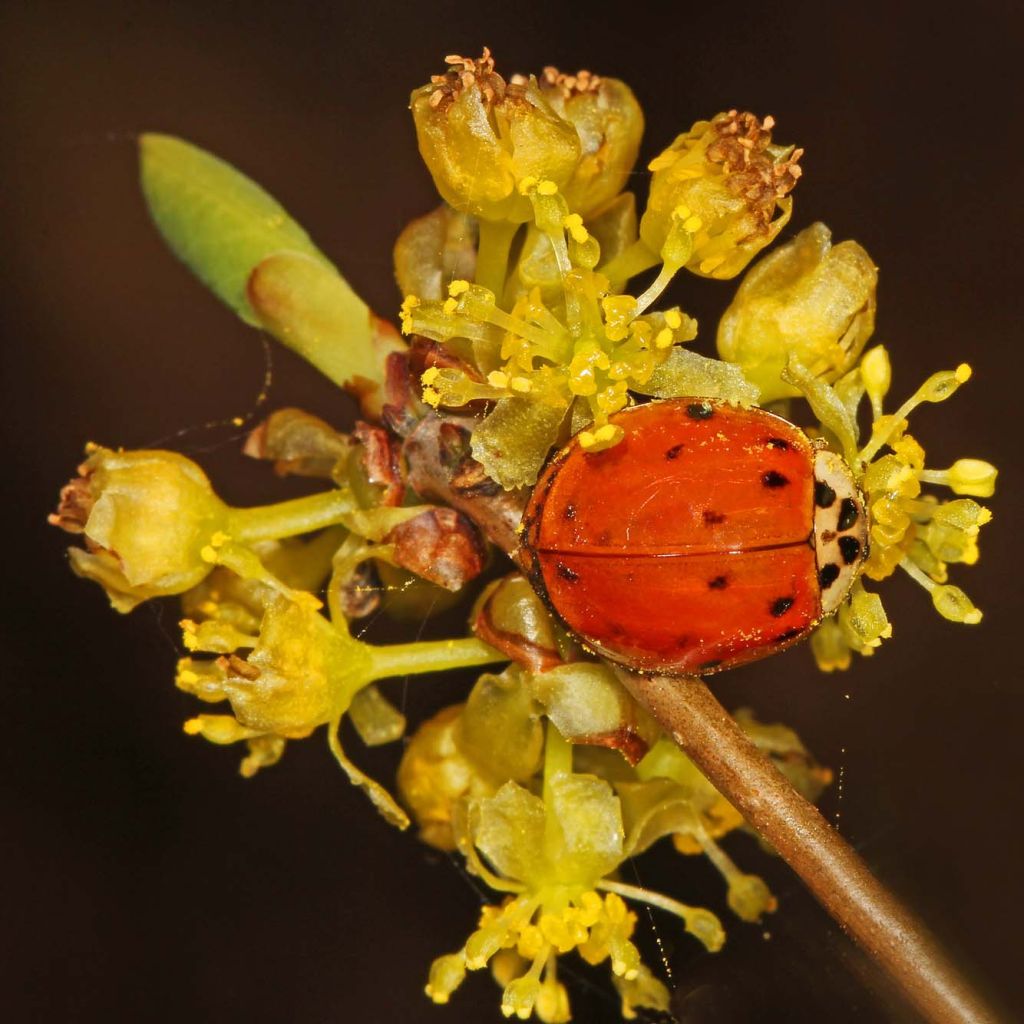

Lindera benzoin - Laurier benzoin.
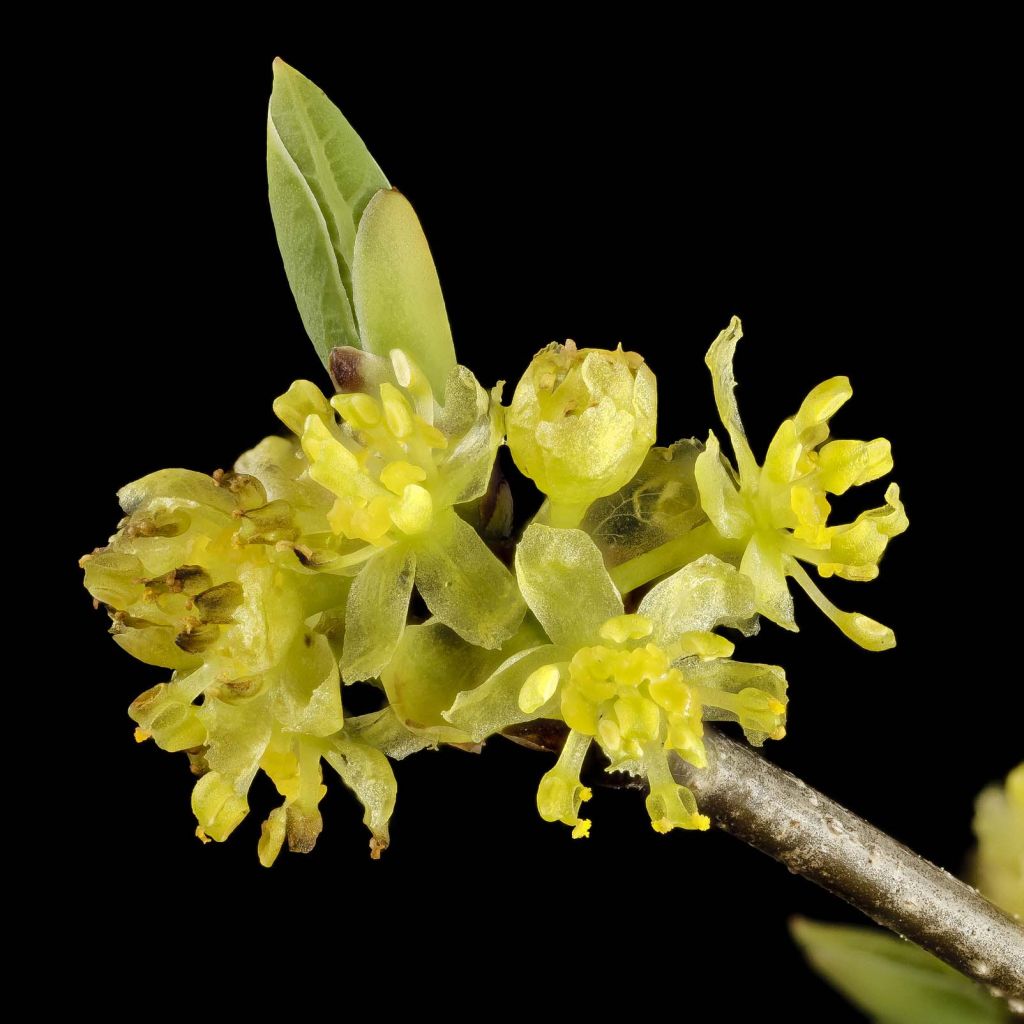

Lindera benzoin - Laurier benzoin.
Lindera benzoin
Lindera benzoin
Spicebush
Another dioecious bush that you boast about its fruiting while it is impossible to know whether it is a male or a female when purchasing: absurd! Revise your argument.
Geneviève, 02/10/2022
Special offer!
Receive a €20 voucher for any order over €90 (excluding delivery costs, credit notes, and plastic-free options)!
1- Add your favorite plants to your cart.
2- Once you have reached €90, confirm your order (you can even choose the delivery date!).
3- As soon as your order is shipped, you will receive an email containing your voucher code, valid for 3 months (90 days).
Your voucher is unique and can only be used once, for any order with a minimum value of €20, excluding delivery costs.
Can be combined with other current offers, non-divisible and non-refundable.
Home or relay delivery (depending on size and destination)
Schedule delivery date,
and select date in basket
This plant carries a 24 months recovery warranty
More information
We guarantee the quality of our plants for a full growing cycle, and will replace at our expense any plant that fails to recover under normal climatic and planting conditions.
Would this plant suit my garden?
Set up your Plantfit profile →
Description
Lindera benzoin is a North American cousin of our bay laurel, and the famous camphor tree, that we are not used to seeing in gardens. Rare in cultivation, this sturdy bush is nevertheless perfectly hardy and can be grown in most regions. Its assets are beautiful glossy and aromatic foliage that takes on superb autumn colours, early spring flowering with pale yellow flowers on branches that are still without leaves, and beautiful fruiting with bright red berries on female plants when planted near a male plant. It will find a place in a large informal hedge or at the back of a flower bed, preferably in a semi-shaded position, in any good garden soil.
Lindera benzoin, also known as Spicebush, belongs to the Laurel family and comes from the wooded and humid regions of the East Coast of the United States. Standing 3 to 4 metres (9 feet 10 inches to 13 feet 1 inches) high and about 3 metres (9 feet 10 inches) wide, this deciduous shrub has a wide, rounded and bushy habit that gives it a strong presence in the garden. It grows rapidly.
The flowering of this laurel takes place very early in spring before the leaves appear. In this dioecious species, male and female flowers are borne by separate individuals. Dense and round clusters composed of tiny pale yellowish-green flowers appear on the young tender green branches, so many that in the United States, the shrub is sometimes called 'Forest Forsythia'. On female plants in the presence of male plants, the flowering is followed by the formation of small fruits that turn bright red when ripe in autumn. The deciduous leaves of the Lindera, ovate and ending in a point, are arranged alternately on the branches; they are large, measuring up to 15 cm (5.9 in) long and 6 cm (2.4 in) wide, medium green and glossy on the upper surface, lighter underneath. In autumn, they take on beautiful golden-yellow to orange hues. In this plant, the bark, leaves, and fruits are aromatic.
The spicebush is not a spectacular shrub, but it easily finds a place in a garden that leaves room for nature. Plant it in a large shrub bed or within an informal or mixed hedge: it will announce the return of spring in the slightly shaded areas of the garden and will participate in the great autumn celebration with deciduous euonymus, certain viburnums (Viburnum odoratissimum, Viburnum sargentii), small maple trees (Acer ginnala Bailey Compact ®, Acer AMPLE SURPRISE), the rowans (Sorbus randaiensis), etc.
Properties:
Just like the camphor tree, this highly aromatic plant provides three fragrant essences with different properties and scents depending on the part of the plant from which they are extracted: the first, from the bark, is similar to the essential oils of Wintergreen and Birch. The second, from the fruit stones, is comparable to camphor. The third, extracted from the leaves, is similar to lavender.
Report an error about the product description
Lindera benzoin in pictures


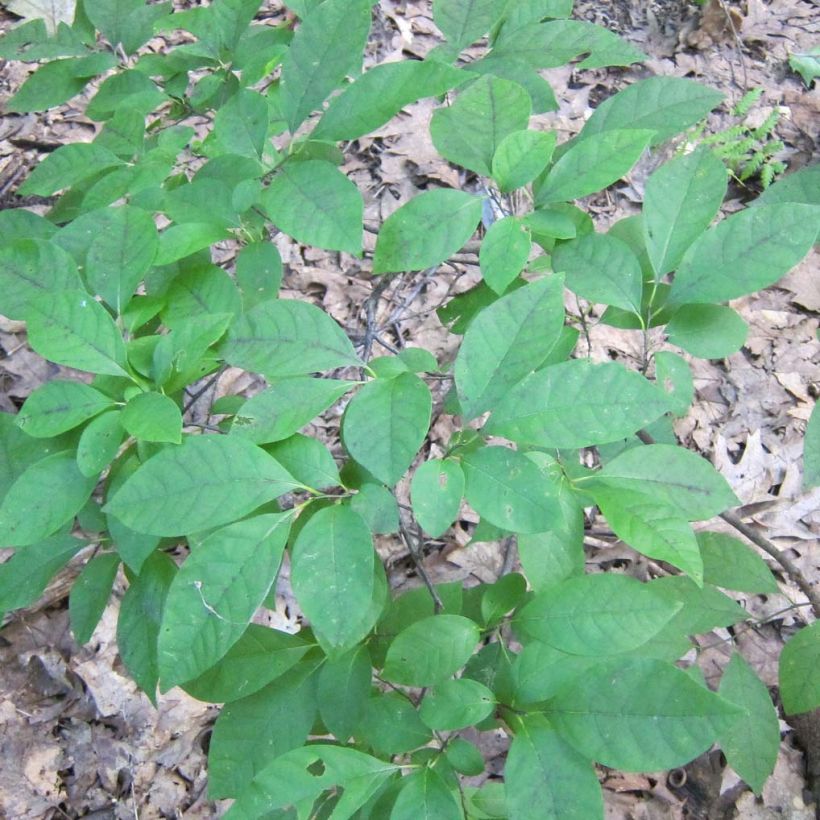

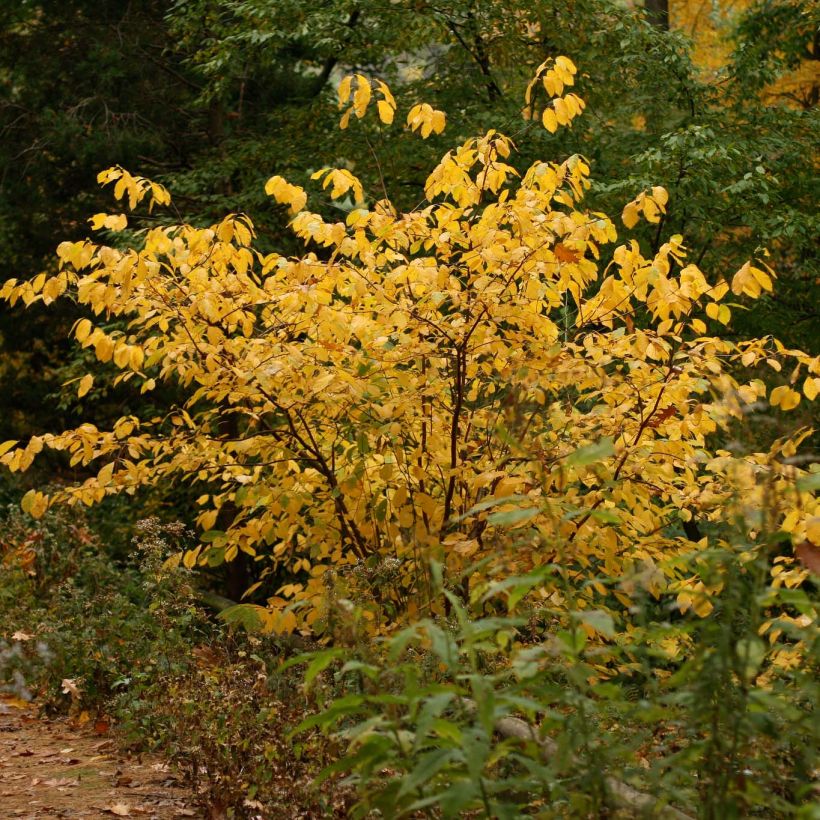

Plant habit
Flowering
Foliage
Botanical data
Lindera
benzoin
Lauraceae
Spicebush
North America
Other Shrubs A to Z
View all →Planting and care
Plant Lindera benzoin in a partially shaded, or even shaded, location, sheltered from the burning rays of the sun. This bush is content with a well-worked, deep soil that remains moist throughout the year. When planting, mix the soil from your garden with fertilizer-enriched compost. Water generously to aid in the establishment of the young plant. Monitor watering during the first two or three years, especially if the summer is hot and dry. Like many aromatic plants, this benzoin laurel is not very susceptible to diseases and pests. Perfectly hardy, it can withstand temperatures well below -15°C (5 °F).
Planting period
Intended location
Care
-
, onOrder confirmed
Reply from on Promesse de fleurs
Similar products
Haven't found what you were looking for?
Hardiness is the lowest winter temperature a plant can endure without suffering serious damage or even dying. However, hardiness is affected by location (a sheltered area, such as a patio), protection (winter cover) and soil type (hardiness is improved by well-drained soil).

Photo Sharing Terms & Conditions
In order to encourage gardeners to interact and share their experiences, Promesse de fleurs offers various media enabling content to be uploaded onto its Site - in particular via the ‘Photo sharing’ module.
The User agrees to refrain from:
- Posting any content that is illegal, prejudicial, insulting, racist, inciteful to hatred, revisionist, contrary to public decency, that infringes on privacy or on the privacy rights of third parties, in particular the publicity rights of persons and goods, intellectual property rights, or the right to privacy.
- Submitting content on behalf of a third party;
- Impersonate the identity of a third party and/or publish any personal information about a third party;
In general, the User undertakes to refrain from any unethical behaviour.
All Content (in particular text, comments, files, images, photos, videos, creative works, etc.), which may be subject to property or intellectual property rights, image or other private rights, shall remain the property of the User, subject to the limited rights granted by the terms of the licence granted by Promesse de fleurs as stated below. Users are at liberty to publish or not to publish such Content on the Site, notably via the ‘Photo Sharing’ facility, and accept that this Content shall be made public and freely accessible, notably on the Internet.
Users further acknowledge, undertake to have ,and guarantee that they hold all necessary rights and permissions to publish such material on the Site, in particular with regard to the legislation in force pertaining to any privacy, property, intellectual property, image, or contractual rights, or rights of any other nature. By publishing such Content on the Site, Users acknowledge accepting full liability as publishers of the Content within the meaning of the law, and grant Promesse de fleurs, free of charge, an inclusive, worldwide licence for the said Content for the entire duration of its publication, including all reproduction, representation, up/downloading, displaying, performing, transmission, and storage rights.
Users also grant permission for their name to be linked to the Content and accept that this link may not always be made available.
By engaging in posting material, Users consent to their Content becoming automatically accessible on the Internet, in particular on other sites and/or blogs and/or web pages of the Promesse de fleurs site, including in particular social pages and the Promesse de fleurs catalogue.
Users may secure the removal of entrusted content free of charge by issuing a simple request via our contact form.
The flowering period indicated on our website applies to countries and regions located in USDA zone 8 (France, the United Kingdom, Ireland, the Netherlands, etc.)
It will vary according to where you live:
- In zones 9 to 10 (Italy, Spain, Greece, etc.), flowering will occur about 2 to 4 weeks earlier.
- In zones 6 to 7 (Germany, Poland, Slovenia, and lower mountainous regions), flowering will be delayed by 2 to 3 weeks.
- In zone 5 (Central Europe, Scandinavia), blooming will be delayed by 3 to 5 weeks.
In temperate climates, pruning of spring-flowering shrubs (forsythia, spireas, etc.) should be done just after flowering.
Pruning of summer-flowering shrubs (Indian Lilac, Perovskia, etc.) can be done in winter or spring.
In cold regions as well as with frost-sensitive plants, avoid pruning too early when severe frosts may still occur.
The planting period indicated on our website applies to countries and regions located in USDA zone 8 (France, United Kingdom, Ireland, Netherlands).
It will vary according to where you live:
- In Mediterranean zones (Marseille, Madrid, Milan, etc.), autumn and winter are the best planting periods.
- In continental zones (Strasbourg, Munich, Vienna, etc.), delay planting by 2 to 3 weeks in spring and bring it forward by 2 to 4 weeks in autumn.
- In mountainous regions (the Alps, Pyrenees, Carpathians, etc.), it is best to plant in late spring (May-June) or late summer (August-September).
The harvesting period indicated on our website applies to countries and regions in USDA zone 8 (France, England, Ireland, the Netherlands).
In colder areas (Scandinavia, Poland, Austria...) fruit and vegetable harvests are likely to be delayed by 3-4 weeks.
In warmer areas (Italy, Spain, Greece, etc.), harvesting will probably take place earlier, depending on weather conditions.
The sowing periods indicated on our website apply to countries and regions within USDA Zone 8 (France, UK, Ireland, Netherlands).
In colder areas (Scandinavia, Poland, Austria...), delay any outdoor sowing by 3-4 weeks, or sow under glass.
In warmer climes (Italy, Spain, Greece, etc.), bring outdoor sowing forward by a few weeks.






























